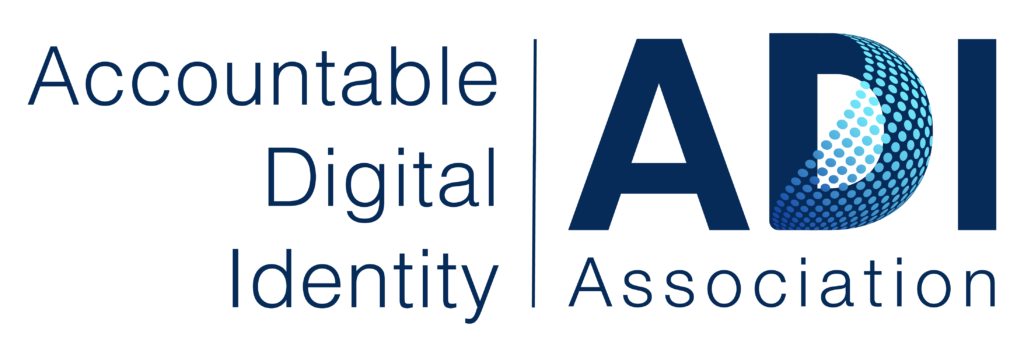1. What is the mission and vision of the ADI Association?
The mission of the ADI Association is to create a global digital identity framework for creating, managing, and using digital identity as well as sharing personal information. This system solves some of the most important practical problems attached to the operation and adoption of decentralized identity technology with an accountable governance framework by enabling a business interoperability layer as well as a technological specification.
2. Why is trustworthy digital identity critical for existing and emerging markets?
Establishing an effective model for digital identity is a priority that spans industries. The traditional identity model for the digital world has been an account with a password. Service Providers give each of their customers an account and assume that those accounts can be secured. However, accounts are breached, and data are compromised. Service Providers do not often even know if the person who created the account was legitimate. In the physical world, individuals can prove who they are by presenting formal documents like a driver’s license, passport, or birth certificate. In the digital world, individuals cannot definitively prove who they are, and the malicious can easily masquerade as someone they are not. This gap between physical and digital identity has led to an exponential increase in online fraud as more interactions and financial transactions have gone digital. It has also led to a rapid rise in misinformation and disinformation propagating through online social media.
3. How will digital identity transform the Canadian and global economy? How does your organization address challenges associated with this transformation?
In the physical world, identities are created at birth by a trusted group of people. Parents choose names; hospitals record birth events; and governments create birth records, which are then used by individuals to register at schools, employers, banks, medical facilities, and so on. Everything an individual does in life is tied to that identity, and that identity becomes the accountable party. ADI Association has defined a similar concept for the digital world, called the “Digital Address.” The next generation of federated identity standards should support the issuance of a lifetime digital identity that a consumer can use across the digital services of their choice. It should eliminate passwords and protect personal data. The Accountable Digital Identity (ADI) Association is developing an open standard, based on decentralized identity, for bootstrapping individual identities online. The work will give identity providers and relying parties a framework to establish secure exchanges of identity-based services for their consumers, customers, employees, and partners. The ADI Association focuses on standards that enhance the digital consumer experience while improving cyber security at the same time.
4. What role does Canada have to play as a leader in this space?
As a current leader, Canada has the opportunity to frame how the future gets shaped by digital identity for both online use cases as well as in the physical world.
5. Why did your organization join the DIACC?
The ADI Association believes that this work cannot be done by a single organization, but will only be realized by concerted efforts to create and promote open standards which can be made available to and adopted by all.
6. What else should we know about your organization?
The ADI Association is a diverse coalition of companies and organizations from around the world who have come together to create an interoperable specification and ecosystem for accountable identity. This level of coordination across industries seamlessly connects a global community of businesses, governments, healthcare providers, and other organizations with customers, people, and patients to modernize the way we manage our online digital interactions.
